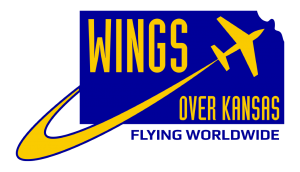
The late Lionel Alford
was born on a farm in Winnsboro, Louisiana. His father died when he was
10 years old, leaving his mother to raise him, along with his brother
and sister, on a 40-acre f arm. All three of them graduated from Winnsboro
High School. He married Julia Bryan, who passed away in June 1992 following
a lengthy illness. Their children are Scott (deceased), who was employed by ‘The
Boeing Company, and Lionel Jr. (retired), who was a Lt. Colonel and test pilot in
the Air Force. Lionel married Jane Wilson in 1996.
Following
high school graduation in 1943, Mr. Alford began his long career related
to aircraft and aerospace systems by joining the Army Air Corp as a pilot
cadet. He received his pilot wings in August 1944 and went overseas as
a B-17 pilot. After the war, he remained in Occupied Germany, flying missions
photographing Germany, France, and North Africa, and was released from
active duty in 1946. During the Korean war, his reserve unit was called
to active duty to fly the B-29 at Barksdale AFB, Louisiana. He was selected
to upgrade to Jet Fighters, training in the Lockheed F-80, at Nelis AFB,
Nevada, where he received Combat Crew training. He was then sent to Korea,
where ne flew one-nundred combat missions. In 1952 the Air Force awarded
Lionel the Distinguished Flying Cross and the Air Medal, with three oak
leaf clusters. He then returned to the United States as an instructor
pilot to serve two years at McConnell AFB in Wichita. Lionel requested
release from the Air Force in 1954.
Between his
World War II and Korean War tours of duty, Mr. Alford enrolled at Louisiana
Polytechnic Institute, and graduated in 1951 with a Bachelor of Science
Degree in Mechanical Engineering. In 1965, Boeing selected Lionel at attend
Stanford University on a Sloan Fellowship in Business Administration,
and in 1985, he was awarded an honorary Doctor of Science degree by the
University at Alabama at Huntsville.
In 1954,
he joined the Boeing Company as a rest Pilot, responsible for all test
activities on the BOMARC test vehicle. In 1959, he became base manager
for the Boeing Atlantic Test Center. Later he was named base manager of
the Boeing Gulf ‘rest Section, Eglin AFB, Florida.
In 1961,
he became project test engineer for the Minuteman ICBM program, directing
test activities in Florida, Seattle, and at Vandenberg AFB, California.
In 1962 he became base manager at Boeing Pacific Test Center. In 1963,
he became project engineer of the Boeing Saturn V moon rocket program
at Huntsville, Alabama. In 1966 Mr. Alford was appointed Saturn program
manager at Kennedy Space Center. He was then named manager of Boeing Huntsville
in 1967. In 1968, he was Minuteman program manager, and in 1973, he became
Ballistic missile Division manager. In 1977, he came to Wichita, Kansas
as president of the newly designated Boeing Wichita Company. An article
in Fortune Magazine stated that “when Lionel D. Alford … agreed to become
president of Boeing Company’s anguished Wichita Division three years ago
(1977), his colleagues thought the f former test pilot had accepted a
suicide mission.” Alford Drought the division from near oblivion to a
$2 billion operation within six years, as employment more than quadrupled.
Today, largely as a result of Alford’s initiatives, a major portion of
almost every Boeing commercial airplane (including three-fourths of the
737) is build in Wichita, and the Wichita Division is responsible for
five percent of the total earnings of the state of Kansas. Without his
leadership and vision, the more than 20,000 employees at Boeing and more
than 1,000 Kansas suppliers might be calling another state their home.
In 1984, Alford became a senior vice president of The Boeing Company,
with responsibility for three operating divisions.
Lionel, an
Associate Fellow in the AIAA, retired from Boeing in 1989. Since then
he has received the President’s medal from Wichita State University, and
the President’s award from Louisiana Technical University. He was recognized
with the 1982 Association of Christian and Jews award, he received the
Kansas Engineering Society Outstanding Citizenship award in 1990, and
he was named the Uncommon Citizen of Wichita in 1992 by the Chamber. He
has been director of the largest bank holding company in Kansas, the Fourth
Financial Corporation, from 19781995 and director of the Saint Francis
Regional Medical Center from 1979-1994. In 1984, he became the Founder
and President of the Kansas Food Bank Warehouse, which feeds the unfortunate
in 53 counties in Kansas, and was chairman of the WI/SE group, responsible
for economic development in Sedgwick County. Today, he is a director of
the Minority Business Council, a director of the Wichita Institute for
the Blind, and a director of Preferred Health Systems, an HMO in Wichita.
Beginning
in 1983, Mr. Alford stepped forward to provide special leadership and
assistance during the times when WSU was seeking new authorization from
the Kansas Board of Regents to establish Ph.D. programs in Engineering
and the Sciences.
his high
level industrial articulation of the needs for these programs in Wichita,
and his strong reluctance to accept a negative response, WSU wouldn’t
have been successful in it quest. The success of these programs today
is a tribute to his leadership and vision.
Mr. Alford
has had a unique and distinguished engineering career calling for executive
level leadership, in addition, he has made significant contributions to
the community and to the University. His contributions to progress and
to excellence make him an outstanding role model for students and practicing
engineers.
